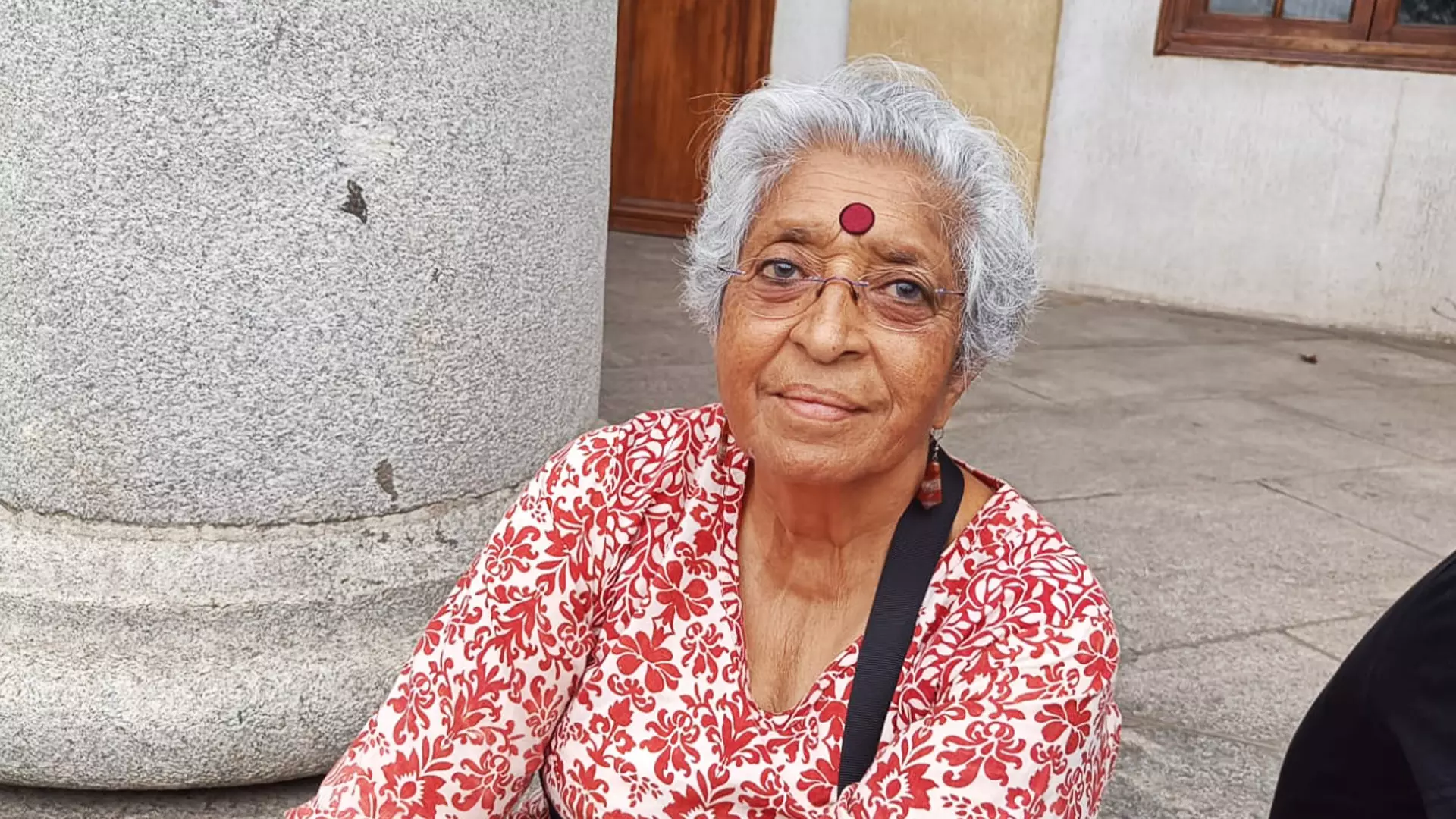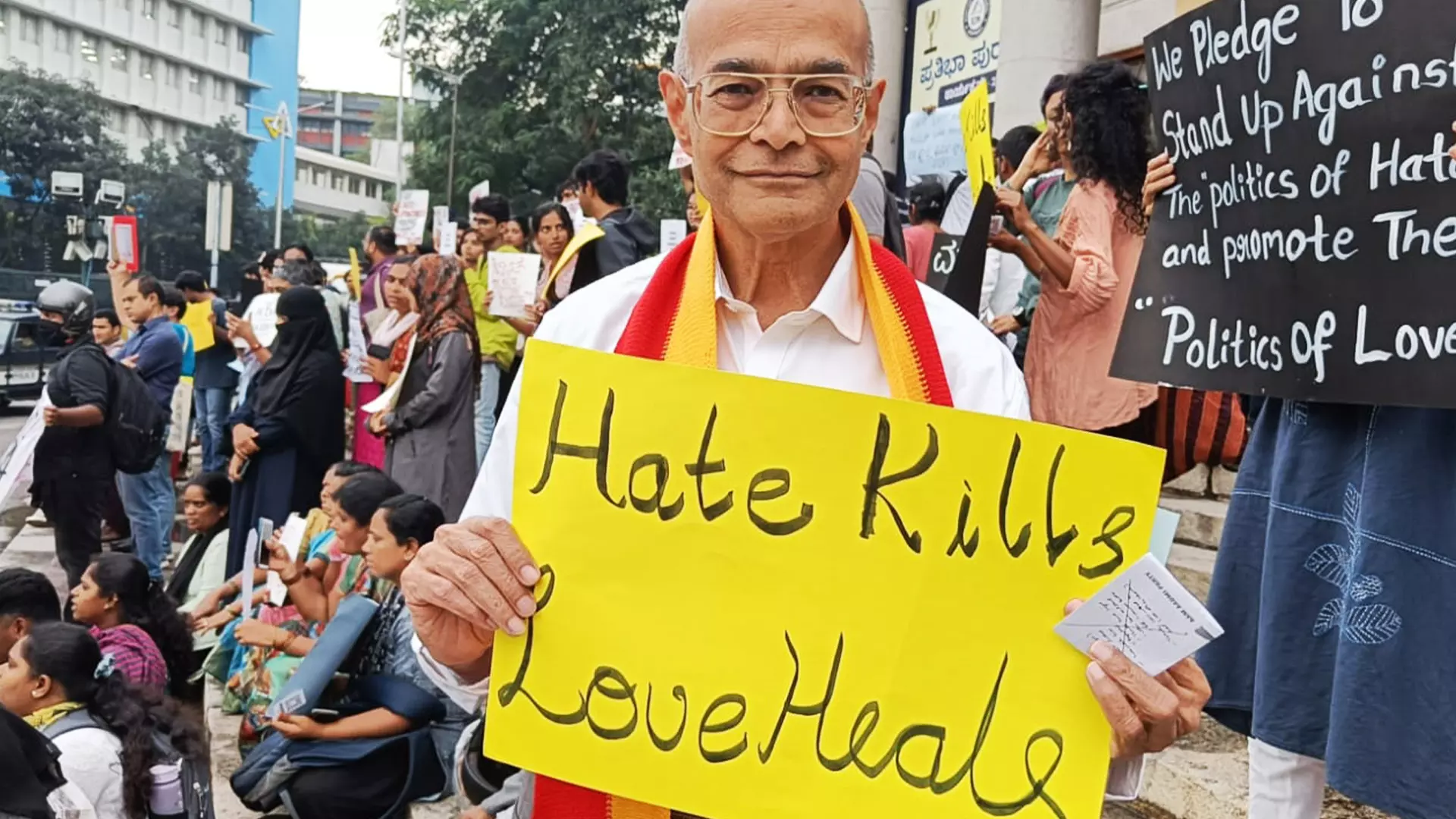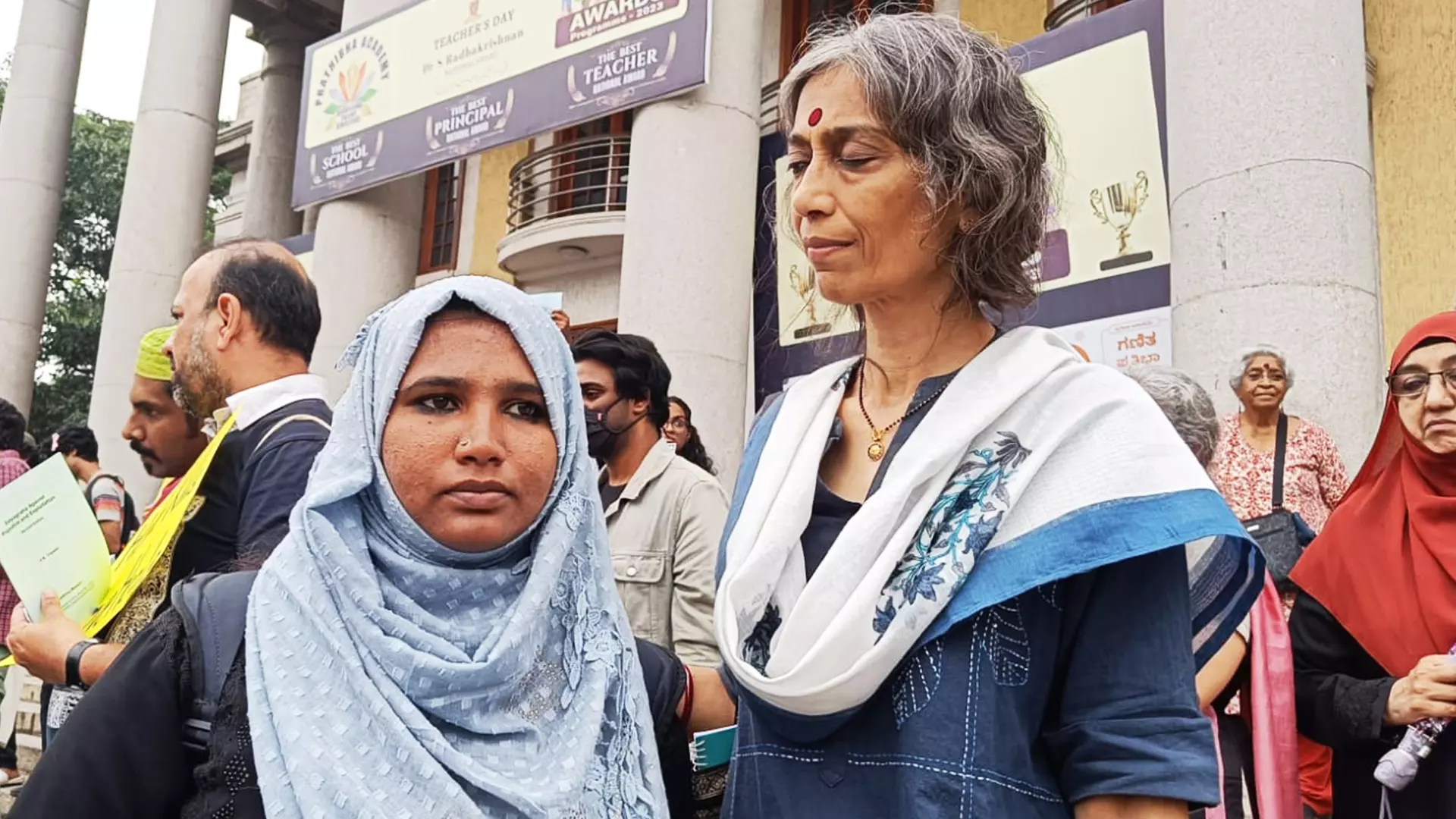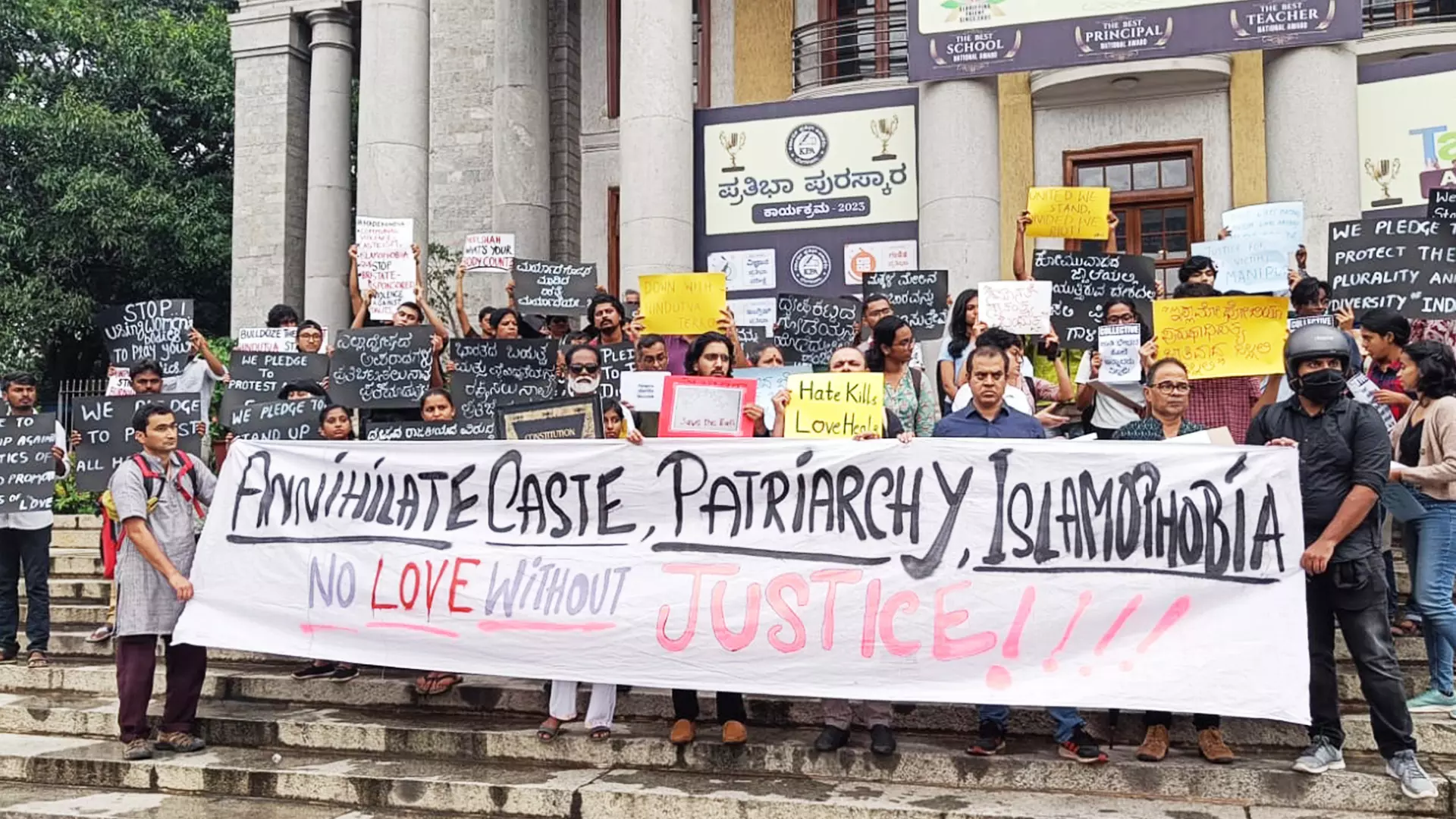
- Home
- India
- World
- Premium
- THE FEDERAL SPECIAL
- Analysis
- States
- Perspective
- Videos
- Sports
- Education
- Entertainment
- Elections
- Features
- Health
- Business
- Series
- In memoriam: Sheikh Mujibur Rahman
- Bishnoi's Men
- NEET TANGLE
- Economy Series
- Earth Day
- Kashmir’s Frozen Turbulence
- India@75
- The legend of Ramjanmabhoomi
- Liberalisation@30
- How to tame a dragon
- Celebrating biodiversity
- Farm Matters
- 50 days of solitude
- Bringing Migrants Home
- Budget 2020
- Jharkhand Votes
- The Federal Investigates
- The Federal Impact
- Vanishing Sand
- Gandhi @ 150
- Andhra Today
- Field report
- Operation Gulmarg
- Pandemic @1 Mn in India
- The Federal Year-End
- The Zero Year
- Science
- Brand studio
- Newsletter
- Elections 2024
- Events
- Home
- IndiaIndia
- World
- Analysis
- StatesStates
- PerspectivePerspective
- VideosVideos
- Sports
- Education
- Entertainment
- ElectionsElections
- Features
- Health
- BusinessBusiness
- Premium
- Loading...
Premium - Events

Over the years, 82-year-old Lalitha Matthew has been a regular at protest rallies in Bengaluru—Karnataka's capital city. The former psychotherapist is one among countless faces who have been instrumental in the growth of citizen activism in Bengaluru. On Saturday (September 2), under an overcast sky, sitting on the staircase of the city’s iconic Town Hall, Matthew’s eyes turned moist as...
Over the years, 82-year-old Lalitha Matthew has been a regular at protest rallies in Bengaluru—Karnataka's capital city. The former psychotherapist is one among countless faces who have been instrumental in the growth of citizen activism in Bengaluru. On Saturday (September 2), under an overcast sky, sitting on the staircase of the city’s iconic Town Hall, Matthew’s eyes turned moist as she lamented about the rising hate crimes against Muslims and Dalits across the country. The octogenarian was joined by a motley group of students, activists, academicians and others to take a “pledge against hate crimes”.
The pledge in English begins with, “We, the people of India and Karnataka are deeply pained and disturbed by the growing crimes of hate across the country. Today we take a solemn pledge to address hate across the country." The participants took the pledge in Kannada—the local language—too. The oath ended with a promise to nurture harmony, peace and mutual respect among all citizens. It stressed the need to uphold constitutional values of diversity, plurality and inclusion.
“Violence against people because of their religion, caste, gender or sexuality is destroying the secular and democratic fabric of the country. I stand against the regular persecution of Muslims, Dalits and women. I take a vow to speak against injustice,” Matthew tells The Federal.

Eighty-two-year-old Lalitha Matthew, one of the protestors, poses for The Federal.
Unlike her friends at the venue, the octogenarian remained seated at one of the stairs for most of the protest. Her age and related ailments don't allow her to stand for long. “But it does not deter me from showing solidarity with my fellow country people who have been victims of various atrocities,” she says. Prior to the coronavirus pandemic in 2020, Matthew attended almost all the protest rallies conducted by civic groups in Bengaluru on diverse issues. Nowadays, she has limited her public outings.
It is not just Matthew, the once vibrant protest scene of the city tapered off after the nationwide lockdown in the wake of the coronavirus. Bengaluru was at the forefront when protests against the Citizenship (Amendment) Act, 2019, passed by Parliament in December 2019, broke out across the country. The city witnessed demonstrations against the legislation targeting the Muslim community for more than two months. Like everywhere else, the pandemic lockdown ended the protests in Bengaluru.
After two years of coronavirus lockdown (both strict and relaxed), public spaces started opening up in 2022, as the number of affected people by the pandemic dwindled. However, the expression of dissent remained restricted to social media and drawing rooms. It seemed as if the voices upholding the rights of the marginalised had lost their previous clarity.

AAP leader Dr Ramesh Bellamkonda's succinctly describes 'love and hate'.
Early last year, when the then-Bharatiya Janata Party (BJP) government of Karnataka banned the wearing of hijab (headscarf) by female Muslim students in educational institutions, Bengaluru hardly saw any public outcry against the decision. The coastal districts—Udupi, Dakshina Kannada and Uttara Kannada—of Karnataka witnessed protests against the curb.
To muffle defiance against its various anti-minority moves, the previous BJP government in Karnataka had banned public gatherings except for Freedom Park—a venue located in the central business district of Bengaluru. The restriction was imposed in 2022 under the Licensing and Regulation of Protests, Demonstrations and Protest Marches (Bengaluru City) Order, 2021.
The incumbent Congress government, which came to power in Karnataka in May this year, is yet to revoke the former regime’s order despite demands from civic groups.
The most-talked-about backlash against protesters was when the former BJP regime filed a First Information Report against 70 citizens. The residents, including children, participated in a walk to peacefully register their resistance to the proposed Sankey Road flyover in the city in February. In May, the police dropped the case against the Sankey flyover protesters.
The protest on Saturday at Town Hall—the podium nurturing freedom of expression for decades—is one of the first few demonstrations to be held outside Freedom Park in recent months in the city. In July, hundreds had gathered at the venue to express their solidarity for the people of Manipur living under a civil war since May 3.

Jayba Kousar says she is a proud hijab-wearing Muslim woman.
“It is the beauty of Bengaluru and its liberal thinking. We always stand for the right causes. We detest hatred, violence and oppression of any minority group,” says a female friend of Matthew, who does not want to be identified. “I am here today as the hatred against Muslims has become an everyday nightmare,” adds the social activist.
Shalom Gauri, a member of Collective, Bengaluru, a youth organisation, tells The Federal that peaceful protest is a right of every citizen in a free and democratic country. “Such protests help to highlight issues even ignored by the media,” adds Gauri, who hopes the heyday of Bengaluru’s civic activism is back soon.
The public gathering is a reassurance that all is not lost as violence from Manipur to Nuh in Haryana cast a shadow on the constitutional rights of the victims whom the state has abandoned.
Bahutva Karnataka—an organisation on plurality, dignity, justice and equality—arranged the event. Vinay Sreenivasa, a member of Bahutva Karnataka, tells The Federal that the organisation did not seek prior permission from the police to host the protest. “We went ahead with it,” he adds. Before the start of the peaceful demonstration, police personnel enquired about the nature of the protest and allowed the participants to go ahead with it.
As the younger lot holding placards shouted slogans against the “fascist regime” of the BJP at the centre, former physician-turned-politician Dr Ramesh Bellamkonda had a message. “Hate kills, love heals.” The 70-year-old Aam Aadmi Party leader is the lone politician at the gathering. Bellamkonda says he joins hands with the citizens in their attempt to raise voices against growing intolerance in the country.

A protest and a pledge against hatred and for love in Bengaluru.
Jayba Kouser, who works with an NGO, says she has been discriminated against because of her religion. “I am a hijab-wearing Muslim woman. I have been ridiculed for my choice of clothes and religious beliefs so many times. If this is not Islamophobia then what is,” Kouser adds narrating her ordeal.
Some of the recent hate crimes denounced and discussed at the Town Hall were—the killing of three Muslim passengers in a Jaipur-Mumbai train by a railway guard, violence against Muslim residents followed by the destruction of more than 1,000 of their homes in Haryana's Nuh, denial of 15 months wages to powrakarmikas (sanitation workers) in Kanakapura in the outskirts of Bengaluru, an Uttar Pradesh teacher egging her students to beat a Muslim boy in the class and the killing of a woman in Karnataka's Kolar for being in love with a man from a scheduled tribe community.
“Our failure to act against this hatred will set us back by several decades. It will prevent all Indians from realising their true potential. We, therefore, call upon all citizens to pledge to defeat casteism and Islamophobia. We should all fight for constitutional values of dignity for all, equality of all and justice for all,” advocate and member of Bahutva Karnataka Maitreyi Krishnan says.

